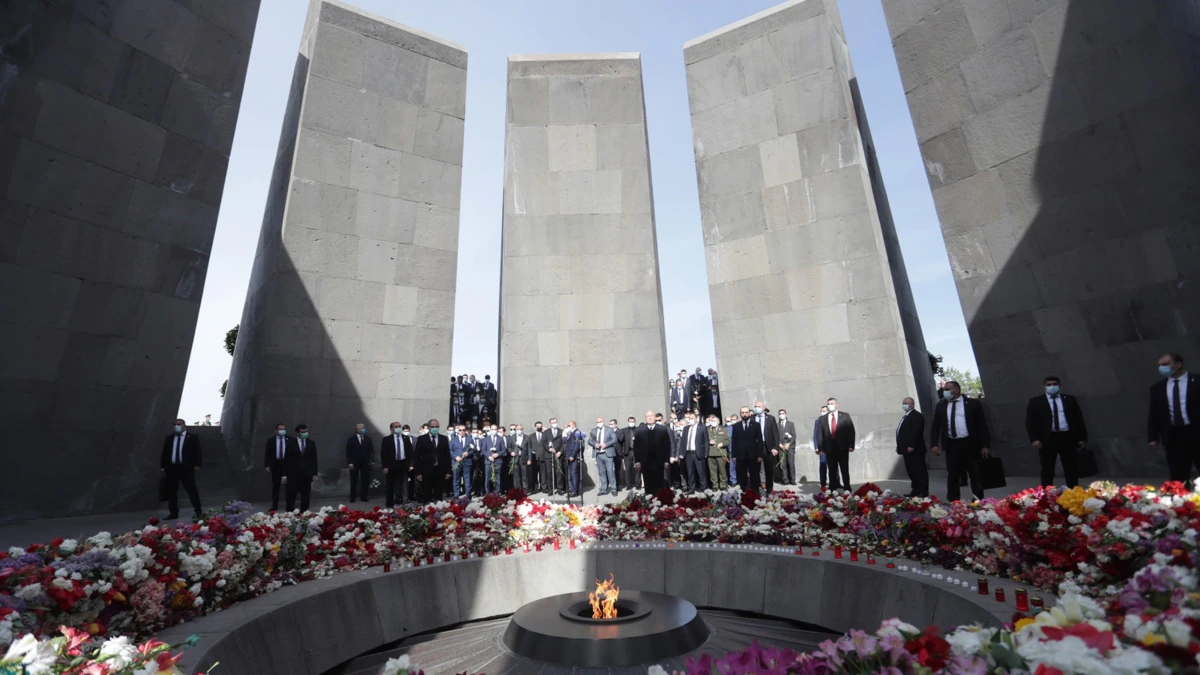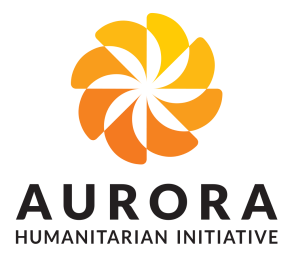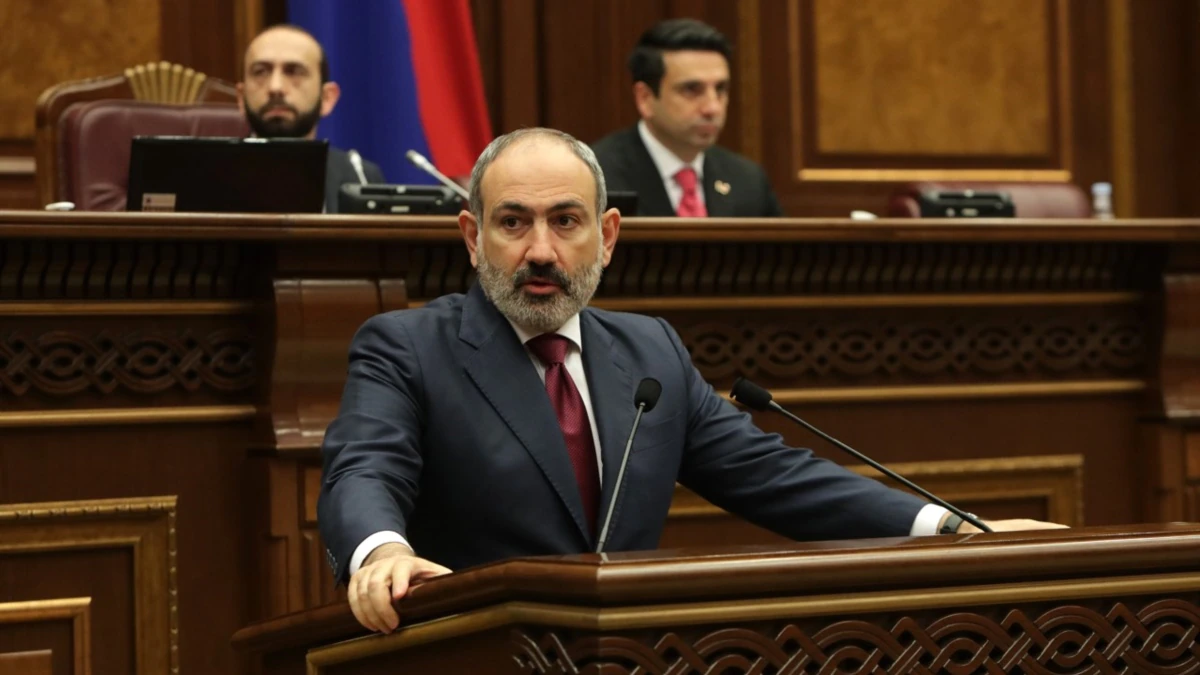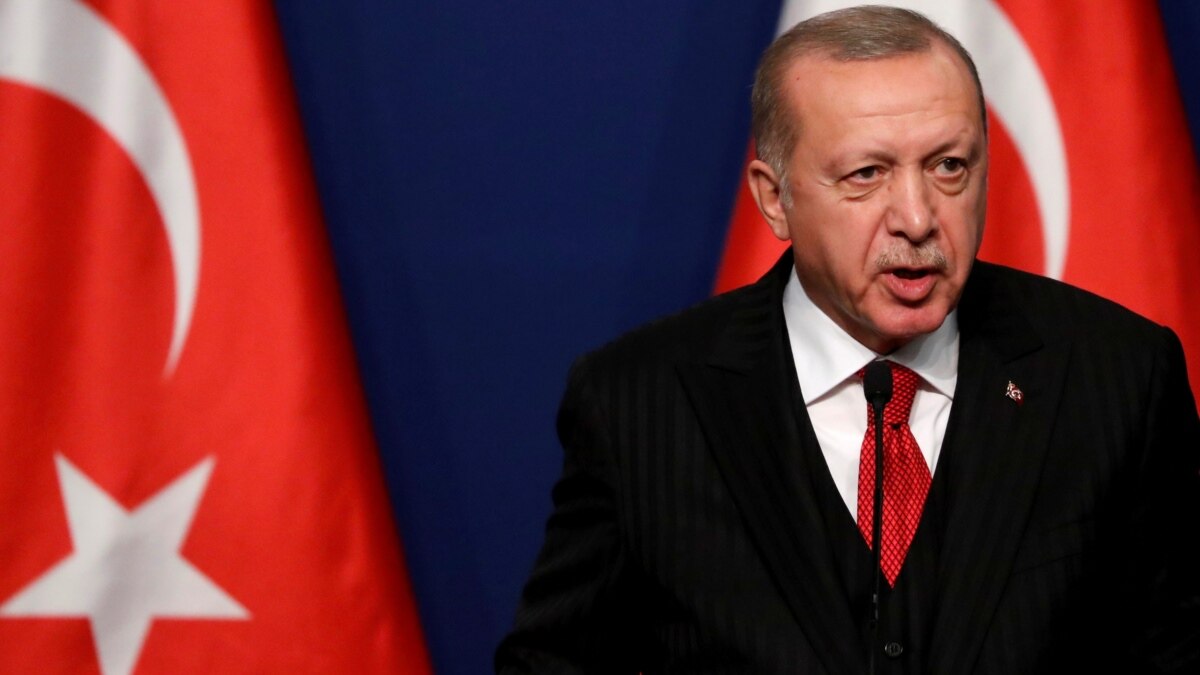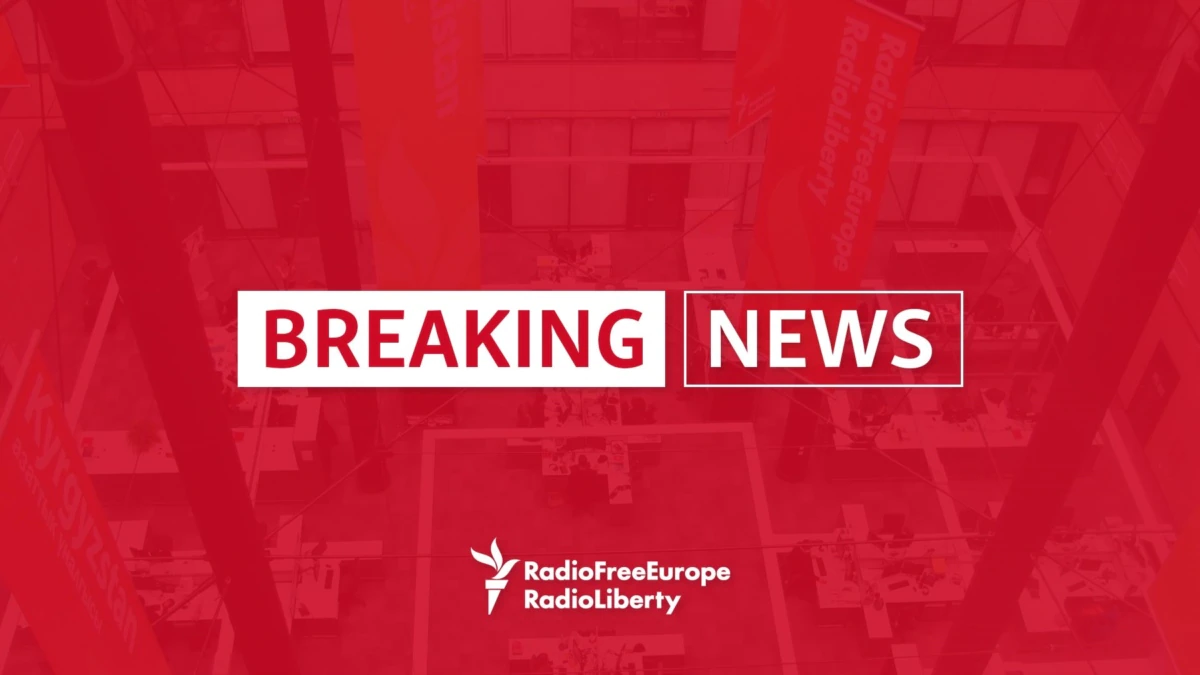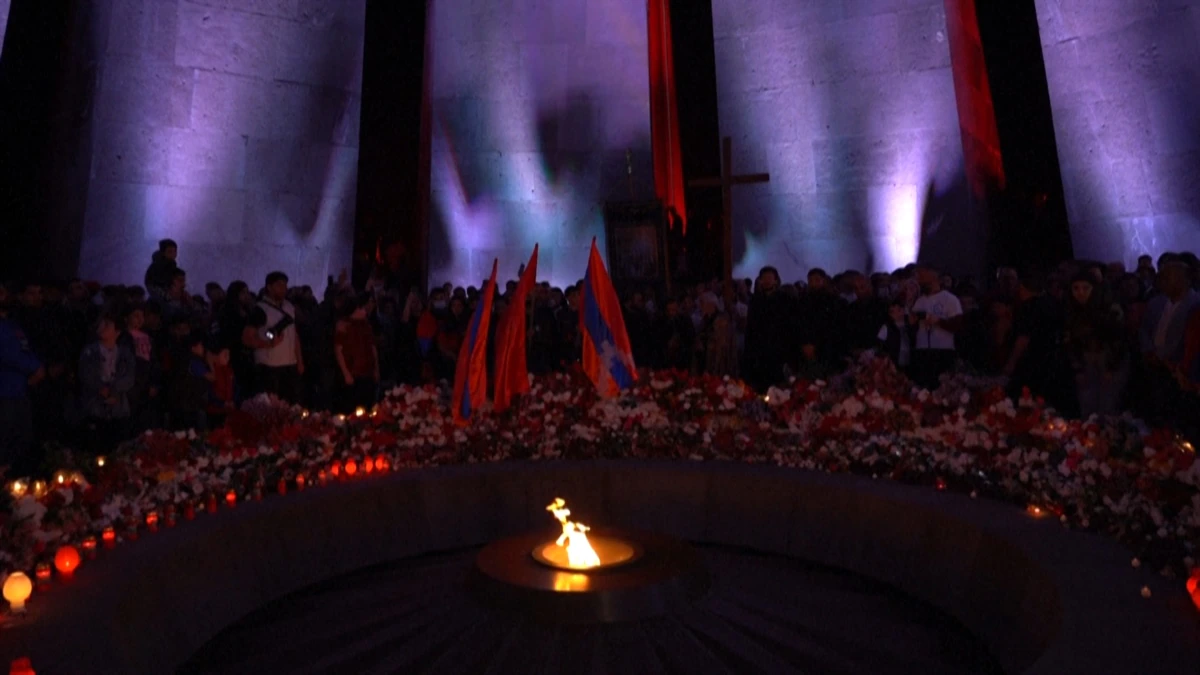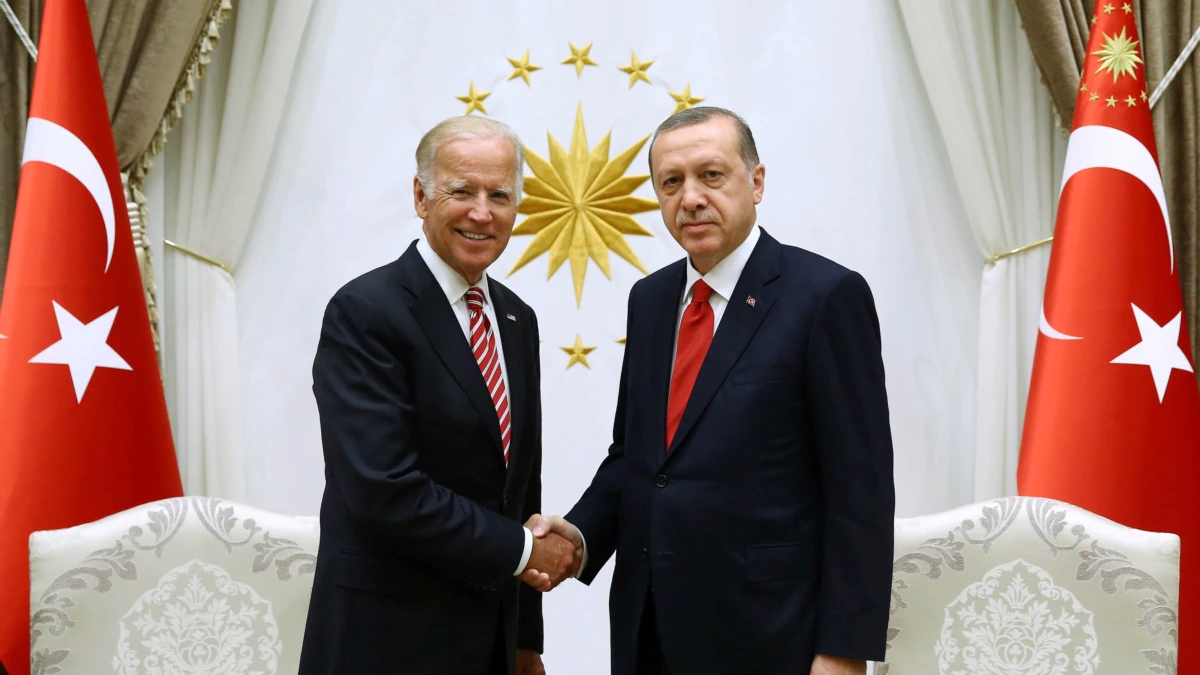Trading Genocides
 On April 24, 2021, US President Joseph Biden declared that the massacre of 1.5 million Turkish Armenians in 1915 constituted genocide. As to whether genocide is the word Americans can consent to use about Native Americans who suffered death, torture, displacement, apartheid and disease at the hands, mainly, of European settlers in the eighteenth and nineteenth centuries is a lot less clear, although some state governors have gone for it. As for slavery, not until July 2008 did the US House of Representatives apologize for American slavery of blacks and the subsequent discriminatory laws and practices that have continued to marginalize and oppress a population that today constitutes over 47 million or 14% of the US population. 9 States have officially apologized for their involvement in the enslavement of Africans.
On April 24, 2021, US President Joseph Biden declared that the massacre of 1.5 million Turkish Armenians in 1915 constituted genocide. As to whether genocide is the word Americans can consent to use about Native Americans who suffered death, torture, displacement, apartheid and disease at the hands, mainly, of European settlers in the eighteenth and nineteenth centuries is a lot less clear, although some state governors have gone for it. As for slavery, not until July 2008 did the US House of Representatives apologize for American slavery of blacks and the subsequent discriminatory laws and practices that have continued to marginalize and oppress a population that today constitutes over 47 million or 14% of the US population. 9 States have officially apologized for their involvement in the enslavement of Africans.
European and American histories are replete with massacres, genocides, and unjust applications of overwhelmingly disproportionate force against indigenous peoples and others who have stood in the way of the material interests of their invaders and conquerors. The US slow determination to condemn Turkey for crimes not dissimilar to those that it has itself committed, abundantly, and in recent history, serves the cause of an official hypocrisy that has long characterized US foreign policy – bedazzling, confusing or distracting its own domestic citizenry from the ugliness of forever imperialism.
Turkey, none too happy about being charged with genocide was hardly taken by surprise. While Turkey has always defended itself against such charges, several Ottoman officials were indeed tried and hanged for their role in the Armenian atrocities. (Which Americans were hanged for atrocities against the Indigenous peoples?). It was not only Turks who were implicated. Many Kurds, who today represent Turkey’s major internal nemesis (matching its external, Greece), participated. Others condemned the atrocities. Some Kurds who participated later atoned. Both Armenian and Kurdish exiles of the collapse of the Ottoman empire ultimately established themselves in Syria under French administration and where the Allawi Shia minority was later to extend protection to Christians against Sunni extremism and concede a fragile autonomy to the Kurds. Today, the Assad regime and Syrian Kurds face off against Turkish invaders who have afforded protection to as many as five million jihadist and former-ISIS supporters around Afrin and Idlib, while the US uses Kurdish forces (principally the SDF) to exploit Syrian oil and gas on its behalf and has them maintain prisons and camps for ISIS remnants.
Biden’s charge was a politically nuanced expression of growing US dissatisfaction with its NATO partner even if, by the same token, it extended a measure of sympathy to the former Soviet and still pro-Russian nation of Armenia, which had suffered at the hands of Azerbaijan and its ally, Turkey, in the 2020 battle for and successful acquisition of disputed territories of Nagorno-Karabakh. Might Armenia, possibly overcome by US moral magnanimity, wrench itself further away from the sphere of Russian influence and look with greater favor upon the USA? Nagorno-Karabakh was an autonomous oblast in Azerbaijan but sharing religious, cultural, and linguistic features of neighboring Armenia. In 1988 the parliament of Nagorno-Karabakh had voted to unify with Armenia. A UN Security Council resolution in 1993 called on Armenia to withdraw its forces from the Azerbaijani district of Kelbajar. Turkey imposed an economic embargo on Armenia and the border was closed. The eruption of hostilities in 2020 was possibly triggered by Armenia’s decision to restore an old border checkpoint, located 15km from Azerbaijan’s export pipelines or by an Azerbaijani incursion into Armenian territory.
Turkish relations with Turkic Azerbaijan, whose population is around 10 million, and with whom it shares 11 miles of border have always been strong. Turkey has helped Azerbaijan realize its economic potential from the Caspian Sea by purchasing Azerbaijani gas and cooperating with Azerbaijan and Georgia in infrastructural projects such as the Baku-Tbilisi-Ceyhan pipeline and the Trans-Anatolian pipeline that connects to the Trans-Adriatic Pipeline (TAP) at the Turkish border with Greece at Kipoi.
A Renascent Empire
It is doubtful that Biden’s endorsement of the “G” word will do much to further complicate relations between the USA and Turkey, but it represents a good moment to pause and reassess what those complications are and the directions in which they point for the future of global peace and conflict. For the major questions today are not to do with the question of genocide as such but with whether, having breathed new life into the Ottoman corpse, Turkey rejoins the ranks of forever empires and, if so, the regional and global impacts this will have. The questions invoke more than empirical calculations of national interest since they have as much or more to with religion (especially Sunni Islam), transnational ethnic (Turkic) identity, national regeneration, energy policy under conditions of climate change and, not least, social class and gender inequities.
That Turkey is a renascent empire is clear enough. By 2021, Turkey had engaged in barely contested or recent uncontested military actions in Iraq, Syria and Libya, had played proxies in South Caucasus and Yemen while engaging in disputes with Greece, strongly supporting the Turkish Republic of Northern Cyprus, and aspiring eastward along the pan-Turkic horizon towards western China. On February 19, 2021, the nationalistic State-owned Turkish television station TRT1 showed a map of the territories it claimed Turkey would control within the next thirty years. They included many Russian and FSU territories including Rostov, Volgograd, Astrakhan, Samara Oblasts, Chuvashia, Chechnya, Dagestan, Adygea, North Ossetia, and Crimea, including Sevastopol. Turkey was predicted to extend its sphere of influence to include Greece, southern Cyprus, Libya, Egypt, Syria, Iraq, Lebanon, Jordan, Saudi Arabia, Oman, Yemen, Gulf countries, Georgia, Armenia, Azerbaijan, Turkmenistan, and Kazakhstan. Curiously, the map originated in a book published in 2009 by the founder of Stratfor Center for Research in International Politics.
It might be appropriate to laugh this off as fanciful delusion, as did many Russian commentators, but by 2021 it was at least clear that Turkey had considerably and aggressively expanded its regional and global influence. Turkey had joined the Council of Europe in 1950 and the European Customs Union in 1995 and embarked on negotiations for membership of the EU in 1999. Yet mirroring the pro-Islamist orientations of President Recep Tayyip Erdoğan Justice and Development Party (AKP) that has held power continuously since 2003 — and in a corrective to the overly coercive imposition of western legal, cultural, and technological practices by the country’s founder Kemal Ataturk from 1923 (sustained by the military up until its participation in an attempted coup against Erdogan in 2016) – the AKP has exerted a strong eastward pull in recent years. This was partly cause and partly result of the stalling in 2015 of negotiations for entry to the EU, reflecting EU concerns about human rights and the rule of law, particularly in the light of the merger in 2015 of the AKP with the anti-European Nationalist Movement Party. In addition, the escalation of Turkish tensions with fellow NATO member Greece, as Turkey pressed claims to the right to prospective oil and gas deposits in what may be Greek maritime territories, has further impaired its image in Brussels.
A Militaristic Empire of Bases, Interventions, and Soft Power
Turkish forces were mainly instrumental in bringing about the formation of the Turkish Republic of Northern Cyprus (TRNC) in 1974. This gained independence in 1983 but is only recognized by Turkey. Since 2018, Turkey has occupied a significant stretch of Syrian land along Turkey’s border with Syria, enveloping as many as five million people.
Earlier, it had invaded northern Iraq in its perpetual quest to subjugate Kurdish populations. Turkish armed attacks in Iraq started in 2007 with an air attack involving 50 fighter jets. Turkey’s 2008 “Operation Sun” involved 10,000 troops. Turkey would likely be an influential party to the takeover by NATO, involving 5,000 NATO troops, of US training and military operations in Iraq from 2021.
It was engaged in the conflict in southern Yemen through its support for the country’s local branch (the Reform Party) of the Muslim Brotherhood, which is represented in the government of Prime Minister Maeen Abdulmalik Saeed based in the south-eastern port city of Aden, thus helping fill the vacuum created by the downfall of the Ali Abdullah Saleh regime in February 2012 and an Iranian-staged coup by Houthi militia against President Abd Rabbo Mansour Hadi in March 2015. This raised concern in Egypt that Turkey’s efforts to increase its presence near the Bab el-Mandeb Strait, through which Gulf oil is transported before reaching the Suez Canal, will threaten the security of Egypt and the Arabian Gulf. Turkey maintains a military base in Djibouti, has tried to gain a foothold both in Somalia and the Sudanese Red Sea island of Suakin.
 Altogether, Turkey maintained bases in Qatar, Libya, Somalia, Northern Cyprus, Syria, and Iraq. Turkey had established a strong alliance with the UN-approved Government of National Accord (the GNA) in Tripoli, Libya, by agreeing to establish an Exclusive Economic Zone in the Mediterranean as a step towards claiming rights to ocean bed resources, and by stationing Turkish forces in January 2020 in defense of Tripoli against the forces of a rival government based in Tobruk, eastern Libya, under former CIA asset Khalifa Belasis Haftar, commander of the Libyan National Army. While the UN Secretary General registered the deal on October 1, 2020, the Tobruk government (supported by the EU, Greece, Russia, Egypt, Cyprus, Malta, France, Germany, Italy, Sweden, Serbia, Syria, Israel, Bahrain. Saudi Arabia, the UAE and Arab League) denounced Turkey’s agreement with the GNA as illegal. Notably, Greece protested that it ignored the presence of Greek islands Crete, Kasos, Karpathos, Kastellorizo and Rhodes, and their respective maritime borders. Turkey’s seismic survey ships and navy vessels regularly clash with Greek vessels near the Greek island of Kastellorizo. In August 2020, Greece and Egypt signed their own maritime deal in response, an exclusive economic zone for oil and gas drilling rights. Yet Turkey wields considerable influence over the coalition government that was established in March 2021.
Altogether, Turkey maintained bases in Qatar, Libya, Somalia, Northern Cyprus, Syria, and Iraq. Turkey had established a strong alliance with the UN-approved Government of National Accord (the GNA) in Tripoli, Libya, by agreeing to establish an Exclusive Economic Zone in the Mediterranean as a step towards claiming rights to ocean bed resources, and by stationing Turkish forces in January 2020 in defense of Tripoli against the forces of a rival government based in Tobruk, eastern Libya, under former CIA asset Khalifa Belasis Haftar, commander of the Libyan National Army. While the UN Secretary General registered the deal on October 1, 2020, the Tobruk government (supported by the EU, Greece, Russia, Egypt, Cyprus, Malta, France, Germany, Italy, Sweden, Serbia, Syria, Israel, Bahrain. Saudi Arabia, the UAE and Arab League) denounced Turkey’s agreement with the GNA as illegal. Notably, Greece protested that it ignored the presence of Greek islands Crete, Kasos, Karpathos, Kastellorizo and Rhodes, and their respective maritime borders. Turkey’s seismic survey ships and navy vessels regularly clash with Greek vessels near the Greek island of Kastellorizo. In August 2020, Greece and Egypt signed their own maritime deal in response, an exclusive economic zone for oil and gas drilling rights. Yet Turkey wields considerable influence over the coalition government that was established in March 2021.
Turkey played a significant role in support of Azerbaijan in the war between Azerbaijan and Armenia in 2021. Turkey’s President Erdogan was the guest of honor at the Azerbaijani victory ceremony in Baku in December 2020, and hailed the “one nation, two states” relationship between Turkey and Azerbaijan.
In the gathering conflict over water rights between Kyrgyzstan and Tajikistan in spring 2021, it was expected that Turkey (leader of the Cooperation Council of Turkic-Speaking States which comprises Turkey, Kazakhstan, and Uzbekistan) would side with Kyrgyzstan, which considers itself a Turkic nation. Tajikistan speaks a language that is related to predominantly Iranian languages Farsi and Dari.
Turkish influence is further enhanced by its considerable diaspora, giving Turkey some leverage over the internal politics of advanced nations with large Turkish immigrant populations, including France and Germany. This extends beyond Turkish ethnic communities as such to all Muslim communities, especially Sunni, open to persuasion that the Turkish state speaks on behalf of the Islamic world. Turkish charities have been active among the 5.7 million Muslims in France, for example, where 50% of imams are trained in turkey and serve Turkish interests while benefitting from Qatari funding.
In addition to its international interventions Turkey’s natural assets grant it considerable leverage over global and regional trade, and military uses of the Turkish straits, Black Sea and Sea of Azov.
A Troubling US and European Ally
Turkey has been a principal ally of the USA throughout much of the Syrian conflict, following the uprisings against the Baathist regime of Bashar Assad in 2011. Experts are divided as to the extent to which these were genuine outpourings of Arab-Spring demands for more democracy, on the one hand, or incited, exploited and expropriated by jihadist movements, including the Muslim Brotherhood — that thirty years previously had staged a violent campaign against Hafez al-Assad, Bashar’s father — and for which there was considerable support from Sunni Turkey as well as funding from Qatar. Turkey turned a blind eye to CIA and jihadist trafficking of fighters and materiel across the border with Syria and allowed itself to be used as a base for oppositional groups. (See also here). Despite a souring of US-Turkish relations following the attempted “Gülen” coup in 2016 against Turkish President Erdogan (who claimed that the USA had harbored its alleged progenitor, Muhammed Fethullah Gülen), the USA did little or nothing to contain a Turkish invasion of northern Syria that year, even though its most prominent victims were US allies, the Kurds, thousands of whose families around Afrin were displaced to make room for hundreds of thousands of oppositional Syrians and foreigners. Some of the new arrivals were bussed up from Ghouta under the terms of a deal agreed between Turkey and Russia. Turkey set up its own administration in the area, and incorporated it within Turkish electricity grid, cellphone networks and currency. It trained and incorporated oppositional militia who were integrated into a military police force, while establishing compliant local Syrian councils to run things. 500 Syrian companies were registered for cross-border trade. In 2019 the USA appeared to greenlight a further Turkish invasion by removing (some) US troops from the area, and in 2020 Turkey stood against a Russian and Syrian offensive on Idlib, although sources differ as to whether it was a win or a lose for Turkey. A continued Turkish occupation of northern Syria assists the USA and NATO in a medium-term policy, following a decade of inconclusive war, to impoverish and destabilize what remains of Assad’s Syria, even as some Arab nations, like the UAE and Saudi Arabia, seek a road back to Damascus despite steep US sanctions that stand in their way. Turkish intervention in Syria has come at a high price: 3.7 million Syrian refugees on top of a domestic population of 84 million, and this in time will likely prove a major source of domestic aggravation. Whether Turkey’s Syrian intervention has achieved greater national security against Kurdish PKK insurrectionists or, to the contrary, consolidated Kurdish opposition to Turkey and provoked an assured succession of Kurdish terrorist attacks into the foreseeable future, is moot.
Turkey has proven helpful to the USA as a member of NATO since 1952, its hosting of US military and air bases (notably Incirlik) and nuclear weapons and, more recently, in its military assistance to Azerbaijan against the much weaker Armenian (and Russian) interests in Nagorno-Karabakh (which Russia did little or nothing to defend despite Armenia’s membership of the Russian-led Collective Treaty Security Organization [CTSO], and despite Azerbaijan’s shooting down of a Russian helicopter over Armenian territory).
Turkey provided robust support for the US-backed coup regime of President Zelensky in Ukraine against Russia, including the sale to Ukraine of up to 17 unmanned aerial vehicles in 2019, persistent refusal to recognize Russian annexation of Crimea in 2014 (to which Turkey itself may lay historical claim), [There was a referendum where Crimeans voted overwhelmingly to join Russia — DV Ed] its assistance to the anti-Russian Tatars of Crimea, its cooperative partnerships with anti-Russian Georgia, and its control over access from the Aegean to the Black Sea (through the Turkish straits which include the Bosporus, sea of Marmara and Dardanelles), which it helps to patrol, and the Sea of Azov. In all these and other ways Turkey has contributed to US and NATO efforts to harass and contain Russia.
Troubled US Patron
The USA is not happy with (and has implemented sanctions in retaliation for) Turkey’s purchase in 2017 of Russia’s S-400 military defense system. The purchase had helped Turkey atone for its shooting down, for little apparent reason, of a Russian Sukhoi Su-24M attack aircraft in 2015 that had allegedly strayed into air space above the formerly Syrian province of Hatay – Syrian rebels shot the pilot as he descended by parachute and downed a rescue helicopter – constituting the first NATO downing of a Russian or Soviet warplane since an attack on the Sui-ho Dam during the Korean War in 1953. The USA is also irritated by Turkey’s conciliatory stance towards Nord Stream 2 and its involvement in TurkStream 1 and TurkStream 2, all of which facilitate the delivery of Gazprom oil and gas to Europe and impede US designs on the European market for its liquefied natural gas (LNG).
Turkey’s Bi-Polar Economy
Turkey’s economy has grown considerably in the 21st century, with average GDP growth averaging 5.4% 2003-2013 and, apart from China, Turkey outperformed all its peers in the fourth quarter of 2020. Turkey’s GDP growth of 5.9% was faster than for the G-20 nations in 2020 excepting China’s 6.5% rate. Its relations with China and China’s Belt and Road initiative are robust, even to the point of Turkish disinclination to intervene in the controversies over allegations of China’s treatment of the Turkic Uyghurs, another source of immigration to Turkey.
Yet Turkey’s currency is fragile. The lira collapsed 50% against the US dollar 2017-2020, and inflation hit 15% in 2019 in response to government’s resort to printing money via its ownership of the Central Bank. While net national debt is a healthy 35.2% of GDP, foreign currency reserves are relatively low and inflation is high. The currency crisis reflects domestic political instability, international diplomatic errors, a balance of trade deficit, over-reliance on construction for growth, and over-dependence on foreign currency loans in the private sector. The Covid 19 epidemic badly bruised Turkey’s income from tourism. The crisis intensified in the final quarter of 2020 with the resignation of Turkey’s finance minister (son-in-law to President Erdogan) and ouster of the head of the Central Bank, following a precipitate further collapse of the lira. Erdogan took the opportunity to reassure the investment community of his faith in financial profiteering and in Turkey as a globally attractive source of cheap labor. Foreign investors likely to be of considerable importance in efforts to stabilize the Turkish economy include China, which is expected to participate in the Istanbul Canal project, and Qatar, which promised billions of new investments at the end of 2020.
The Energy Factor
Energy lies close not just to the country’s economy but to the existential center of neo-Ottomanism and its many apparent contradictions between domination, self-sufficiency, and dependency. It has both nurtured and stifled Turkey’s vacillating economy. This dynamic plays out in at least four principal ways:
- Control over oil, gas, and other energy flows by tanker through the Turkish (Bosporus) straits and a planned additional waterway, Erdogan’s pet project, the Istanbul Canal. As a hub for the supply of gas from Central Asia, Russia and the Middle East to Europe and other Atlantic markets, Turkey exercises enormous potential leverage over other nations that is immediately susceptible to political manipulation. State-owned corporations are powerful players in Turkish energy politics. They include TPAO for petroleum, domestically producing 7% of Turkish petrol consumption; BOTAS, the state-owned Petroleum Pipeline Corporation; and state-owned Tupras which controls 85% of Turkey’s refinery capacity. Countries that border the Black and Azov Seas are significantly dependent on the Bosporus Straits for passage of imports and exports. Many ports on the Azov ship grain to Turkey, for example. Russia exerts significant control over passage from the Black to the Azov seas via the Kerch strait, half of which it owns. Future monetization of Turkey’s advantage as gatekeeper of the potential Bosporus chokehold will likely be enhanced by construction of the Istanbul Canal which may not be constrained, it is thought, by the Montreux Convention of 1936 that currently regulates conditions of passage through the Straits, and that will permit Turkey to charge additional fees in return for speedier, more expansive permissions and passage. Critics fear the costs (an estimated $15 billion) of such an enormous enterprise and its environmental consequences. Russia fears that that the new canal will facilitate Black Sea access for NATO ships.
- Permission for and participation in the construction of regional pipelines (as in the Trans-Anatolian pipeline that delivers Azeri gas from the Caspian to the Trans-Aegean pipeline and on to Europe). Pipeline fees of passage are an important source of revenue. In 2021, Turkey had four long-term pipeline contracts with Russia, Azerbaijan, and Iran. Two major pipelines include the BTC (Baku-Tbilisi-Ceyhan), linking Turkey, George and Azerbaijan, and the Iraqi Pipeline from northern Iraq to Ceyhan (in the southeast corner of Turkey). The Kurdish Regional Government (KRG) pipeline runs from Erbil in Iraq to Ceyhan. Ceyhan is an important port for Caspian and Iraqi oil imports. Under the US Countering America’s Adversaries Through Sanctions Act of 2017, the US has sanctioned both TurkStream 1 & 2. But these are of declining significance to Turkey, in any case, given the competition from the Sakarya gas field in the Black Sea, and transit fees for passage through the new Istanbul canal that will likely prove more lucrative than pipeline fees. Another imminent threat to TurkStream 2 is the north-south corridor formed by Greece, Turkey and Ukraine that can be fed by LNG from the Mediterranean with reverse flows back to Ukraine.
- The purchase of Liquefied Natural Gas from the USA and other suppliers (Turkey is a primary destination for US LNG) and its rerouting by pipeline, tanker, or truck – a development that reduces the significance of regional pipelines, affords Turkey more flexibility in routing and also the blocking of competitors, and puts the USA in a potentially strong competitive position against Russia’s Nord Stream 1&2 and TurkStream 1&2 for delivery of gas to Europe. LNG gas imports from the USA, Qatar, Algeria, Nigeria were cheaper in 2021 than constructed pipeline gas from Gazprom. Turkey was now Europe’s third largest importer of US LNG behind Spain and France.
- The development of new oil and gas fields in the Eastern Mediterranean, Aegean, and Black Seas. These acquire considerable relevance in the context of Turkey’s near total oil and gas dependency, which has been a major economic stumbling block. Almost all (99%) of Turkey’s natural gas was imported in 2015, of which 56% came from Russia’s Gazprom (other suppliers were Iran and Azerbaijan), although Russia’s share had fallen to 34% by 2019. Turkey spent $41 billion on natural gas imports alone in 2019. 60% of Turkey’s crude oil imports are from Iraq and Iran, and 11% from Russia (2015). This very dependence has served as inspiration to Turkey to establish its own supplies of fossil fuel both in the Eastern Mediterranean, in partnership with Libya (where both the US and Russia have tacitly supported a policy of opposition to new developments lest these compete with their own exports) and in the Black Sea.
In August 2020, President Erdogan announced a major find (320 billion cubic meters but may well prove much more) of natural gas reserves in the Black Sea within the western part of Turkey’s Exclusive Economic Zone (EEZ) – the Sakarya field, on the perimeter of Bulgaria’s and Romania’s maritime borders. Critics worry about the costs of deep-water drilling and extraction from Sakarya, an ultra-harsh environment. Erdogan has expressed his desire that Turkey should develop Sakarya independently but, if the capability of TPAO falls short, involvement of non-Turkish majors could eat into profits considerably. For the longer term and as the impacts of climate change intensify, Turkey’s energy plans are uncomfortably wedded to planetary-menacing fossil fuel while at home, coal constitutes 40% of Turkey’s domestic energy production in conditions of escalating demand.
Favoring Greece
US unhappiness with Turkey as a partner stands at a crossroads. Turkey remains a strategically useful regional proxy force for the USA, alongside Israel, for the advancement of US interests in Syria. This can last indefinitely, even as Israeli preoccupation with Turkey’s expansion intensifies and as Turkey’s bid for leadership of Sunni Islam proves more compelling. This is particularly true of the Palestinian cause in Israeli-occupied Gaza. Turkish humanitarian organizations were behind the Gaza Freedom Flotilla of six ships in 2010 that sought to bring relief to the Gaza Strip. The ships were forcibly detained by Israeli forces in international waters and 10 Turkish activists were slaughtered. Israel has since paid compensation.
The recent surprising alliance between the USA and Israel may be seen in this light, i.e. as Israel’s targeting of Turkey, not Iran, while Turkish interventions are perceived by the UAE, Egypt, and the Arab League as a threat to Arab security, a perspective that is shared by France and probably other European powers. UAE’s Foreign Affairs minister has even said that the UAE wants Turkey to stop supporting the Muslim Brotherhood, bête noire of Sisi’s post-Morsi Egypt and Syria’s Assad regime, among others. Turkey’s bid for Sunni leadership, therefore, cannot advance far in competition with powerful regional rivals, Saudi Arabia, and Egypt but, in as much as both Saudis and Egypt have recklessly betrayed the Palestinian cause in their attempt to maintain US favor, Turkey has uncovered a strong and unpredictable weapon of soft power. Turkey’s capability as US proxy in the Turkic world will prove increasingly useful as the USA persists in its attempt to destabilize, fragment, contain and threaten the Russian Federation and in its gathering assault on Chinese power. But on the other hand, Turkey’s quest for independent power may lead it towards seemingly unlikely alliances with Azerbaijan, Afghanistan, Pakistan, and China, possibly in league with Russia and Iran, against the USA and India in Asia. There have been two trilateral summits between Turkey, Azerbaijan, and Pakistan (2017, 2021). It is envisaged that there may be nuclear cooperation between Pakistan and Turkey (Pakistan has nuclear warheads), and Russia is building 4 nuclear energy plants in Turkey. China has supplied missile technology. The further the USA moves away from Turkey, the closer, inevitably, Turkey will draw towards Russia with implications for the way Turkey chooses to nurture its ties to Turkic powers within and close to the borders of the Russian Federation.
In the Western world, on the other hand, the USA has increasingly less cause for sympathy with Turkish ambitions since these irritate both the European Union and NATO. US disillusionment may go so far as a US withdrawal of its military facilities in Turkey (including its air base in Incirlik and NATO’s Land Command in Şirinyer, Izmir) in favor of Greece as its new major Mediterranean center of operations, embracing new or expanded US facilities in Souda (Crete), Volos, Larissa, and Alexandroupolis. By 2025, Souda will become the largest and most important US naval base in the Eastern Mediterranean with 25,000 personnel. While Turkey has been suspended from the purchase of F-35 war planes since its purchase of Russian S-400 air defense in 2019, Greece is now planning expenditure of $3 billion on F-35s. A US-Greek Mutual Defense Cooperation Agreement signed in October 2010 provides a framework for this expanding partnership. In line with US favoring of Greece against Turkey, Greece is set to intensify cooperation with Israel, as in pipeline deals to bring Eastern Mediterranean gas to Europe. Andrew Lee has called this overall strategy a version of the “Intermarium” – a geopolitical concept originating in the post-World War 1 era that envisages an alliance of countries reaching from the Baltic Sea, over the Black Sea to the Aegean Sea that would serve as an alternative power bloc between Germany and Russia.
Conclusion
In conclusion we can infer the following:
(1) Turkey, released at least in part by Erdogan’s AKP from the foundational Ataturk mission of westernization and secularization, has rediscovered in Islamism an Ottoman legacy that could enable it to re-establish a regional, even a global influence – political, cultural, economic and military – throughout the Muslim and Turkic worlds and the Muslim diasporas of the non-Muslim and non-Turkic worlds.
(2) Combining and deploying the advantages of new sources of energy independence and its traditional chokehold power in the Bosporus (extended now to the Istanbul Canal), Turkey will ascquire a much stronger negotiating position in its relations with Russia, the USA and EU.
(3) Its economic fragilities notwithstanding, Turkey will grow in its attraction to international investors, particularly China, on account of its net international and regional energy networks.
(4) Turkey’s greater activity in the Middle East will be perceived as a growing threat to the established powers of Saudi Arabia and Egypt, to Israel and the UAE, while its growing involvement in Yemen may give it a stronger toehold in the politics of the Red Sea and Persian Gulf.
(5) In Syria, Turkey will for some time exercise a significant constraint on the restitution of Syrian sovereignty and therefore will be regarded with suspicion both by Iran and by Lebanon whose interests are directly impacted by deterioration of the Syrian economy.
(6) Domestically and regionally, Turkey must still worry about Kurdish irredentism which it has done little to soothe and much to anger. To this is added the pressure of a large, new, unsettled immigrant population of Syrian exiles.
(7) Through its recently established links with Libya, and its long-standing influence over Northern Cyprus, Turkey will be a stronger contender for influence in the eastern Mediterranean and north Africa.
(8) Most importantly, Turkey’s relatively recent and aggressive renascence in some of the world’s most strategically and militarily sensitive parts of the world exponentially increases the likelihood of reckless behavior – on the parts of many players – and unforeseen consequences any of which could easily ignite regional tensions, in conflagrations that almost certainly will suck in the world’s major nuclear powers.
The post
Ottoman’s Forever Empire and its Multiple Triggers for War first appeared on
Dissident Voice.
This post was originally published on Dissident Voice.







 On April 24, 2021, US President Joseph Biden declared that the massacre of 1.5 million Turkish Armenians in 1915 constituted genocide. As to whether genocide is the word Americans can consent to use about Native Americans who suffered death, torture, displacement, apartheid and disease at the hands, mainly, of European settlers in the eighteenth and nineteenth centuries is a lot less clear, although some state governors have gone for it. As for slavery, not until July 2008 did the US House of Representatives apologize for American slavery of blacks and the subsequent discriminatory laws and practices that have continued to marginalize and oppress a population that today constitutes over 47 million or 14% of the US population. 9 States have officially apologized for their involvement in the enslavement of Africans.
On April 24, 2021, US President Joseph Biden declared that the massacre of 1.5 million Turkish Armenians in 1915 constituted genocide. As to whether genocide is the word Americans can consent to use about Native Americans who suffered death, torture, displacement, apartheid and disease at the hands, mainly, of European settlers in the eighteenth and nineteenth centuries is a lot less clear, although some state governors have gone for it. As for slavery, not until July 2008 did the US House of Representatives apologize for American slavery of blacks and the subsequent discriminatory laws and practices that have continued to marginalize and oppress a population that today constitutes over 47 million or 14% of the US population. 9 States have officially apologized for their involvement in the enslavement of Africans.

